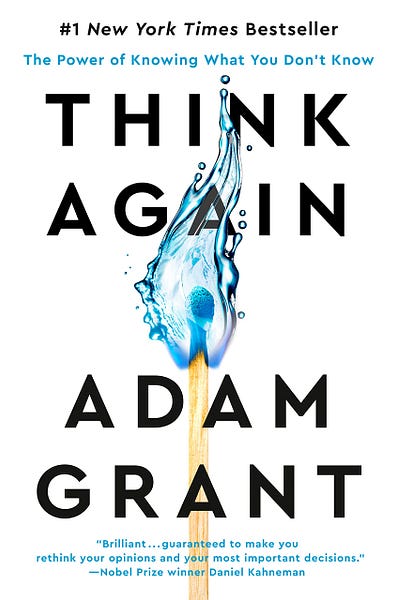We want to hear from while you’re reading this month’s book. To ask questions, share thoughts and interact with other members use the comment section on this page.
Member Discussion for “Think Again” — August 2022
We want to hear from while you’re reading this month’s book. To ask questions, share ...








Please note that we at The Dispatch hold ourselves, our work, and our commenters to a higher standard than other places on the internet. We welcome comments that foster genuine debate or discussion—including comments critical of us or our work—but responses that include ad hominem attacks on fellow Dispatch members or are intended to stoke fear and anger may be moderated.
You are currently using a limited time guest pass and do not have access to commenting. Consider subscribing to join the conversation.
With your membership, you only have the ability to comment on The Morning Dispatch articles. Consider upgrading to join the conversation everywhere.